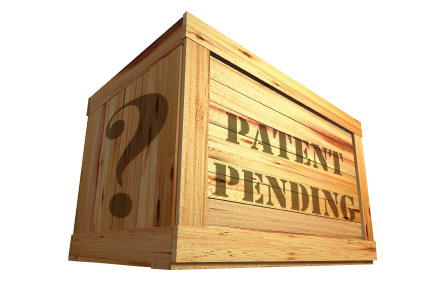 Patent professionals can do a better job providing patentability review, or "opinion," services for innovators. As most readers would recognize, a patentability review assesses whether the invention to be claimed will meet the legal requirements for patentability. In the US, this entails an assessment by a patent attorney, which can be based on a formal or informal search, whether the client’s invention is novel and non-obvious over the prior art. The rules by which a patent attorney makes a determination of patentability are well-established and would not be considered controversial by most experienced practitioners. Nonetheless, as an IP Strategist who works exclusively with clients engaged in developing and delivering meaningful innovations to consumers, I know that these entrenched patentability assessment practices deserve retooling for those clients who can be classified as "innovators." To this end, I believe that the way the patent
Patent professionals can do a better job providing patentability review, or "opinion," services for innovators. As most readers would recognize, a patentability review assesses whether the invention to be claimed will meet the legal requirements for patentability. In the US, this entails an assessment by a patent attorney, which can be based on a formal or informal search, whether the client’s invention is novel and non-obvious over the prior art. The rules by which a patent attorney makes a determination of patentability are well-established and would not be considered controversial by most experienced practitioners. Nonetheless, as an IP Strategist who works exclusively with clients engaged in developing and delivering meaningful innovations to consumers, I know that these entrenched patentability assessment practices deserve retooling for those clients who can be classified as "innovators." To this end, I believe that the way the patent
Patentability Reviews for Innovations
Startup Patent Licensing: Beating the Long Odds
 Achieving meaningful revenue through licensing by startup entrepreneurs can be for all intents and purposes a “unicorn event:” much discussed, but rarely achieved. Notwithstanding this reality, a significant number of startup entrepreneurs who seek to engage me for IP Strategy and patent development consulting assert confidently that their necessity for a patent is based on a business strategy of licensing (or selling) their protected product or technology to an established company.
This is not surprising because it is embedded in the DNA of much of society that “if you build a better mousetrap, the world will beat a path to your door.” Late night infomercials featuring famous people and entrepreneur “hero stories” in the press also bolster this conviction. It is certainly heartwarming and inspiring to believe that an "Average Josephine" can become rich solely on
Achieving meaningful revenue through licensing by startup entrepreneurs can be for all intents and purposes a “unicorn event:” much discussed, but rarely achieved. Notwithstanding this reality, a significant number of startup entrepreneurs who seek to engage me for IP Strategy and patent development consulting assert confidently that their necessity for a patent is based on a business strategy of licensing (or selling) their protected product or technology to an established company.
This is not surprising because it is embedded in the DNA of much of society that “if you build a better mousetrap, the world will beat a path to your door.” Late night infomercials featuring famous people and entrepreneur “hero stories” in the press also bolster this conviction. It is certainly heartwarming and inspiring to believe that an "Average Josephine" can become rich solely on
Startup Patent Strategy: US Patent Non-Publication

How Startup Patent Filing is Different
 The prevailing view of patent experts who advise innovators--be they individuals or companies--it that patent filings should occur as early as possible. This advice, which is even more prevalent now that the US has moved to a "first to file" system, exacerbates the significant problem of worthless patents that I have written about previously. To summarize, by "worthless," I mean that the innovator's patents will not cover anything that consumers desire to buy. Logic thus dictates that patents will be irrelevant to the startup, as well as expensive wastes of time, unless protection aligns with a validated customer demand for the innovator's product or technology.
This is where a key difference falls out between the patent filing strategies for established companies and startups where each is developing innovative products or technology. The former already have products in the market and customers that
The prevailing view of patent experts who advise innovators--be they individuals or companies--it that patent filings should occur as early as possible. This advice, which is even more prevalent now that the US has moved to a "first to file" system, exacerbates the significant problem of worthless patents that I have written about previously. To summarize, by "worthless," I mean that the innovator's patents will not cover anything that consumers desire to buy. Logic thus dictates that patents will be irrelevant to the startup, as well as expensive wastes of time, unless protection aligns with a validated customer demand for the innovator's product or technology.
This is where a key difference falls out between the patent filing strategies for established companies and startups where each is developing innovative products or technology. The former already have products in the market and customers that
The Medical Device Patent Strategy Problem-Case Study
 An IP Strategist like myself spends considerable time "Monday Morning Quarterbacking" patent strategy for medical devices and other inventions for the purposes of valuation, commercialization and otherwise. In this regard, I am frequently asked to review medical device patents to provide my opinion regarding claim coverage in relation to commercialization potential. Most of these reviews indicate that the medical device patent fails to create a scope of protection sufficient to justify the investment needed to fully realize the value of a new market opportunity. Alternatively, I will provide a "freedom to operate" opinion to a competitor that wishes to enter the market with a non-infringing alternative but which nonetheless leverages the key insights that formed the basis of the patented medical device innovation.
An IP Strategist like myself spends considerable time "Monday Morning Quarterbacking" patent strategy for medical devices and other inventions for the purposes of valuation, commercialization and otherwise. In this regard, I am frequently asked to review medical device patents to provide my opinion regarding claim coverage in relation to commercialization potential. Most of these reviews indicate that the medical device patent fails to create a scope of protection sufficient to justify the investment needed to fully realize the value of a new market opportunity. Alternatively, I will provide a "freedom to operate" opinion to a competitor that wishes to enter the market with a non-infringing alternative but which nonetheless leverages the key insights that formed the basis of the patented medical device innovation.
To this end, a medical device investor recently engaged me to conduct a preliminary review of a
Do Startups Need Patents? Rigorous Study Presents Real Data on Startup Company Patenting Behavior
 As an IP Strategy advisor, I am often asked by the leadership of startup companies what the return on investment is from patenting. While I can confidently provide recommendations as an expert, my opinions are anecdotal based on my almost 20 years experience as an IP professional. Certainly, I have advised a number of startup companies over the years for which comprehensive patent coverage was critical to financial and market success. On the other hand, I have advised a much larger number of startup companies over the years where patenting made little difference to their fortunes.
The subjective nature of IP advice holds for other patent professionals. Our respective years of experience results in tacit knowledge that becomes "expertise." This expertise guides clients to us for advice and allows them to trust in our counsel. Missing from my knowledge
As an IP Strategy advisor, I am often asked by the leadership of startup companies what the return on investment is from patenting. While I can confidently provide recommendations as an expert, my opinions are anecdotal based on my almost 20 years experience as an IP professional. Certainly, I have advised a number of startup companies over the years for which comprehensive patent coverage was critical to financial and market success. On the other hand, I have advised a much larger number of startup companies over the years where patenting made little difference to their fortunes.
The subjective nature of IP advice holds for other patent professionals. Our respective years of experience results in tacit knowledge that becomes "expertise." This expertise guides clients to us for advice and allows them to trust in our counsel. Missing from my knowledge
IP and Intangible Asset Strategy: The Easy to Deploy, Not-So-Secret Weapon for Capturing Business Value
IP and intangible asset strategies are a critical feature of ALL businesses regardless of size, product or customer. But why? Put simply, leaders need to be comfortable that their companies have the mechanisms in place to capture the value that you see possible from the venture. Without foresight and action, other businesses will be able to capitalize on the first/early mover's advantage. This happens often when a US company develops a new product, as well as the market for the product, and ex-US companies come in with a lower priced product to take the market away from the first mover. I have also seen customers (that is, big box or other consumer facing retailers) actually instigate the knock-offs: when the first mover demonstrates that a market exists for a product, the retailer will reach out to an Asian manufacturer to create a private label product with the same consumer benefits as that
Enhancing Innovation ROI by Adding Patents at the Front End: Some Resources
 A new client has asked for some information on how consideration patents and IP at the front end of the innovation/product development process can enhance business value. Readers of this blog might find this material informative, also.
This is a published article from Innovation Management article entitled "How to Improve Innovation ROI with Early Stage Patent Expertise." In this article, I discuss how IP can help orient innovation teams in a direction that can enhance value capture. Practical steps to implement such a program into innovation processes is included in this article.
Here is a YouTube video that explains my process simply. In short, including IP at the front end of a company's innovation process allows one to enhance their calibration with respect to the IP rights of others to better ensure that they will achieve the desired ROI on
A new client has asked for some information on how consideration patents and IP at the front end of the innovation/product development process can enhance business value. Readers of this blog might find this material informative, also.
This is a published article from Innovation Management article entitled "How to Improve Innovation ROI with Early Stage Patent Expertise." In this article, I discuss how IP can help orient innovation teams in a direction that can enhance value capture. Practical steps to implement such a program into innovation processes is included in this article.
Here is a YouTube video that explains my process simply. In short, including IP at the front end of a company's innovation process allows one to enhance their calibration with respect to the IP rights of others to better ensure that they will achieve the desired ROI on
Hey “Patent Experts”: How Do You Like Groupon’s Patent Now? *Crickets*
Yesterday's announcement of the firing of Groupon's CEO and the hope for a rebirth of the company's business model brought to mind a post that I wrote a couple of years ago railing against the self-interested opinions of "patent experts" on why Google offered $6 Billion for Groupon in late 2010. Re-reading the post in the rear-view mirror, it is more clear than ever that Google made the offer for the precise reason I set out below in December 2010:
Google, and other acquirers, buy business models, not patents. As we strategy-focused IP people have been saying for years, a patent is worthless unless it covers a viable business model–either yours or one you want to own. Google is interested in Groupon because it offers them an established business model in an area that fits into their long term business strategy. Are the patents nice to have? Of course,
Lean Startup Methodology: How Patenting Decisions Fit into this New Business Framework
One of the first questions start up entrepreneurs usually ask sounds something like this: “Is it worth the effort and expense to get a patent on this business idea?” In countless conversations with clients in my years as a patent attorney, I could usually articulate multiple reasons why the person seeking to to start a new business venture unequivocally needed to file a patent application as soon as possible. Moreover, I could recite a litany of ills that could follow from failing to follow my advice. Following this conversation, I could typically expect a fat check from the client, whereupon I would dutifully draft strong patent on the subject invention. It was a nice living. These days, I work as a startup technology company CEO and look at patents much differently than I did in the past: as a consumer of patent services myself, I now examine patenting issues from


